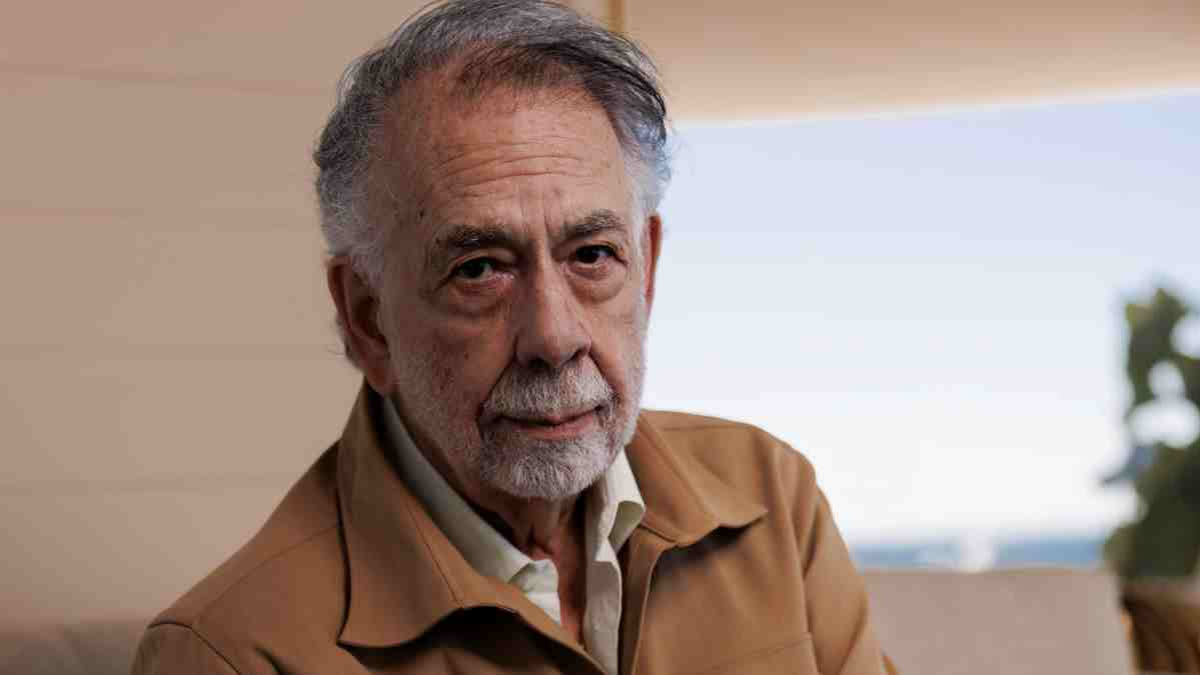Cannes (France): Amongst the many quotes and catchphrases swirling through Francis Ford Coppola’s idea-packed, open-hearted, unabashedly hopeful Megalopolis, one that strikes a chord with the director is: "When we leap into the unknown, we prove that we're free."
"That's exactly what I'm doing with this film," Coppola told a newswire the day after Megalopolis premiered at the Cannes Film Festival 2024. "To all of the studio big shots, I proved that I’m free and they’re not. Because they don't dare leap into the unknown. And I do. That's the only way to prove that you're free."
Coppola pauses before adding, with a smirk, "But I wouldn’t recommend it."
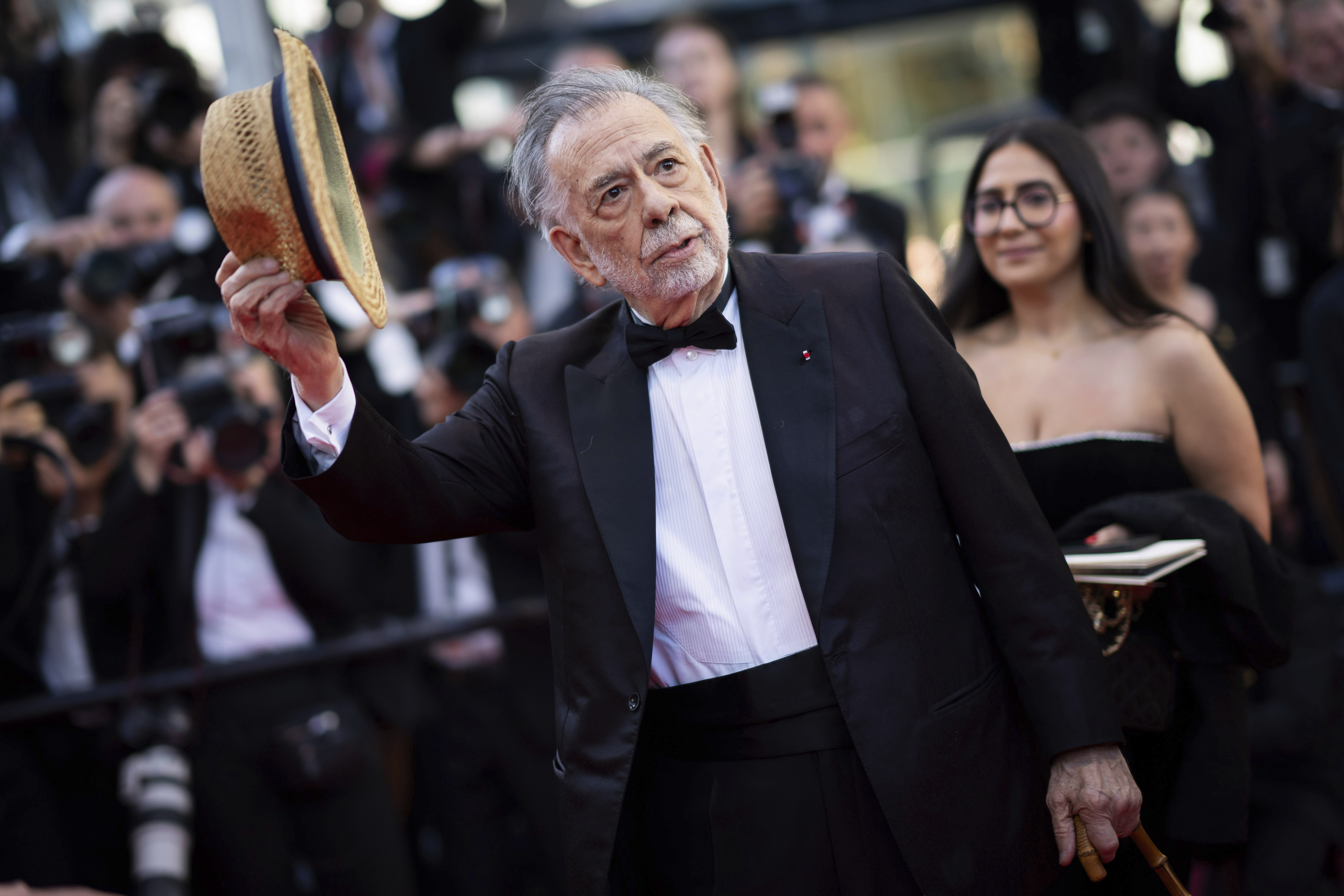
Megalopolis marks Coppola's return to director's chair after 13 years. The filmmaker has been labeled many things since its debut in Cannes 2024. A folly. A disaster. An audacious, self-financed risk. Yet, irrespective of whether all its peculiar components seamlessly mesh, it stands as a monumental personal declaration by one of America's most visionary filmmakers, about the courage to envision.
It’s not a small stride but another monumental leap by the 85-year-old Coppola, who believes so fervently in what Megalopolis embodies that he's dedicated some four decades to it. After the premiere, as the audience rose in applause, Coppola took hold of the mic to extend its message, advocating for "one human family" and "the children."
"My dream would be that this movie could be seen on New Year’s Eve and people would — instead of saying I’m going to lose weight or I’m not going to smoke anymore or I’m not going to cheat on my wife — talk about: Is the society we’re living in the only one available?" Coppola reflects. "How can we make it better? And if they talk about it, they will. That’s my dream."
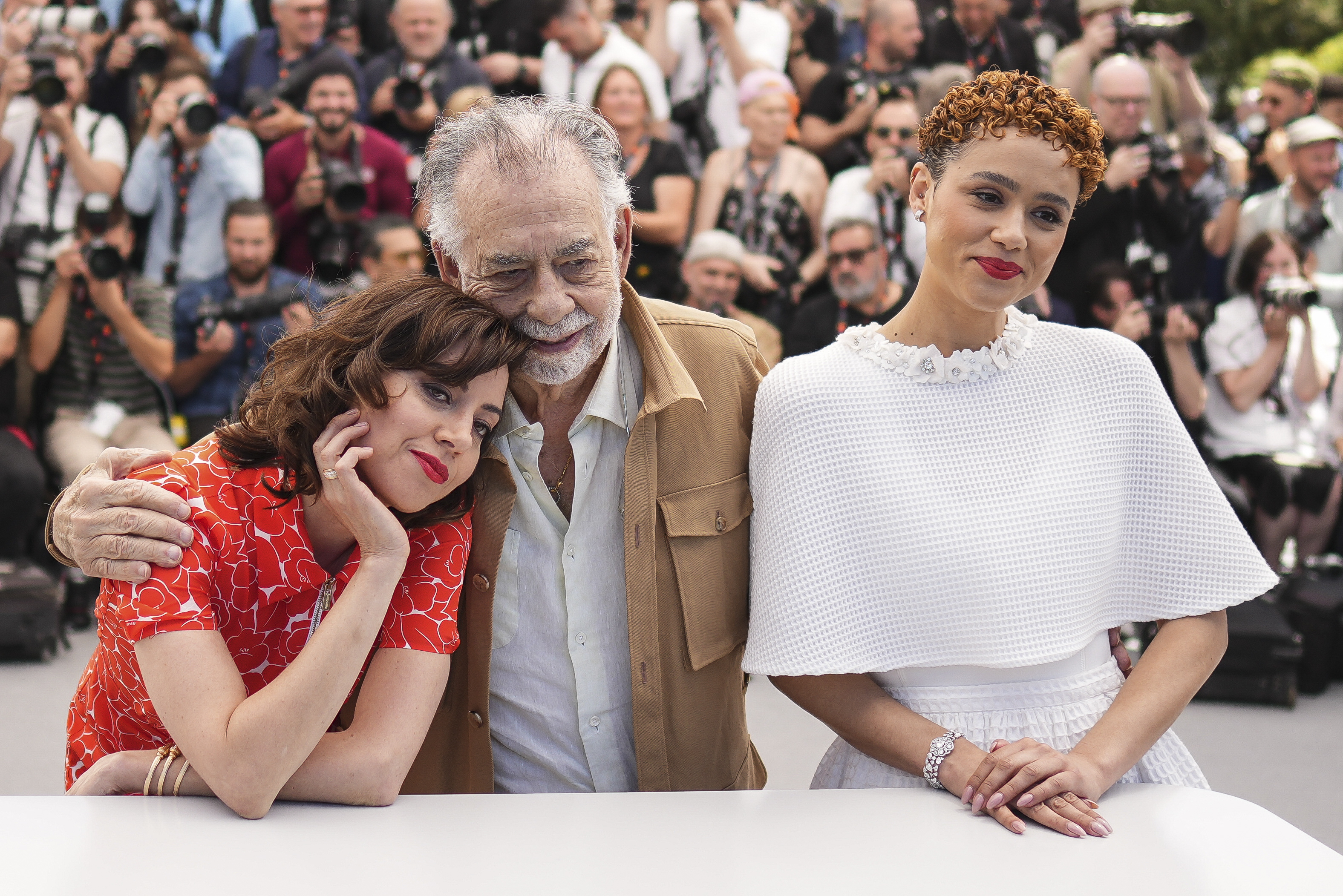
In Megalopolis, Adam Driver portrays Cesar Catilina, a figure reminiscent of a Roman emperor with the ability to halt time in a futuristic New York. He's an inventor aiming to construct a new metropolis using a substance he's devised called Megalon. Yet, in spirit, he resembles more of an artist. Cesar references Hamlet, alongside Emerson, Marcus Aurelius, and Ovid. One can't help but notice Adam in Megalopolis is a little like Coppola himself.
During the Cannes press conference, Laurence Fishburne, who starred alongside Coppola in Apocalypse Now, recollected Coppola’s perpetual fascination with stopping time.
Coppola, leaning on a cane or his granddaughter Romy Mars throughout Cannes Film Festival 2024, is now acutely aware of the passage of time, especially following the recent passing of his wife, Eleanor Coppola, in April. Megalopolis is dedicated to his wife of sixty years.
Time is a central theme in Megalopolis, a project 40 years in the making, which Coppola began contemplating seriously after completing 1997’s The Rainmaker. He desired to step back from his career and delve into more experimental pursuits.
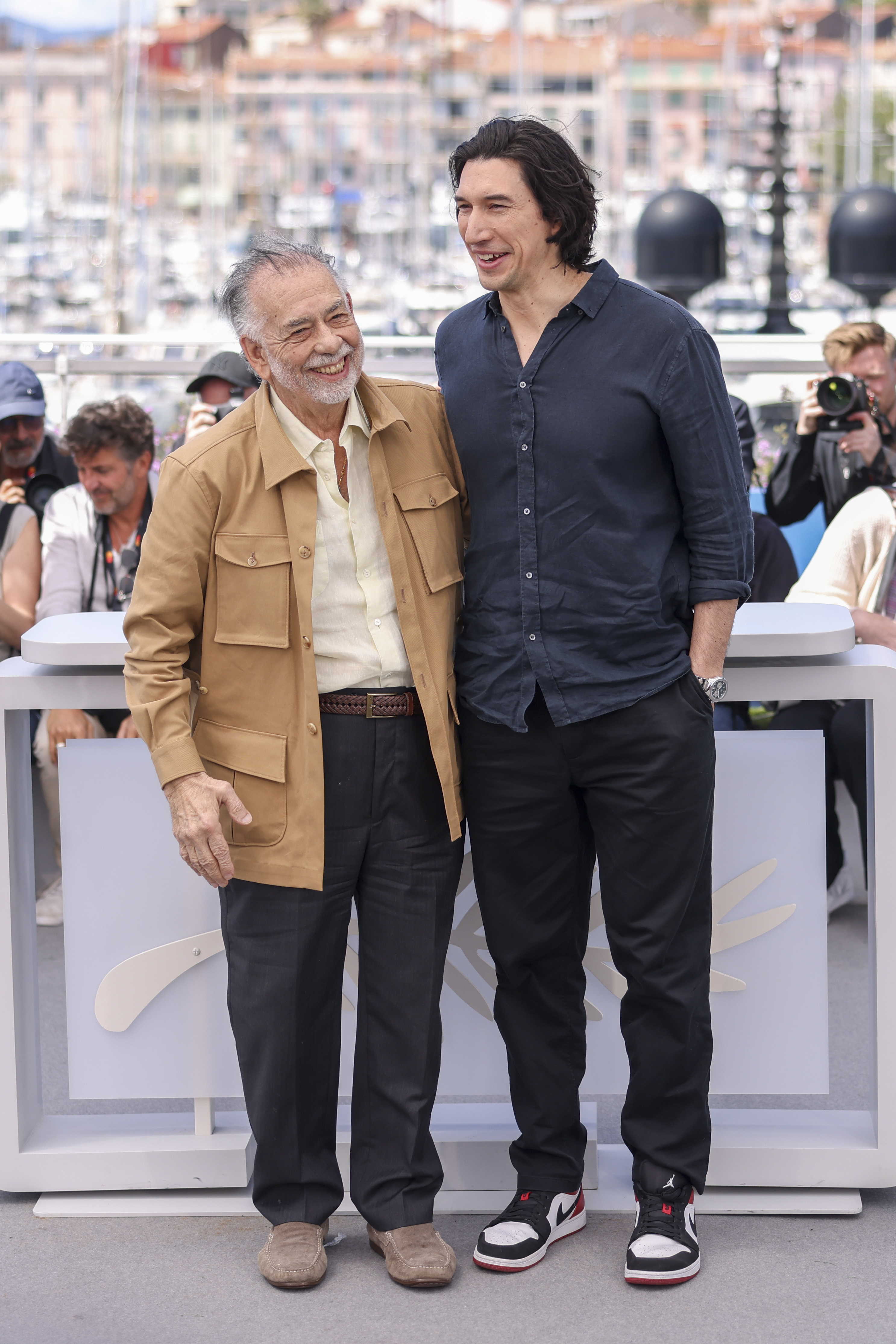
Coppola revised Megalopolis numerous times over the ensuing years. Much like Orson Welles, another American filmmaker who found early success but later delved into experimentalism, Coppola became enamored with new cinematic possibilities. He shared some of his insights in the 2017 book Live Cinema and its Techniques. During the Cannes screenings of Megalopolis, a man stepped onto the stage midway through and posed a question to Cesar, who loomed large on the screen. It was akin to infusing Megalon into the film's fabric.
Driver was deeply invested in Coppola’s vision, and the director regards him as a significant collaborator. Driver, seated beside Coppola on the terrace, recounted how on the first day of filming, Coppola admonished the cast: "We’re not being brave enough."
"For him to make a film like that at this point in his life I thought was a beautiful thing," Driver reflects. "He has conviction and it’s so ballsy. Why is it that he’s doing that at this point in his career and other people aren’t following that example?"
Megalopolis has faced its fair share of criticism. After a private screening in Los Angeles last month, it was deemed commercially unviable. Even its staunchest defenders acknowledge that Megalopolis juggles numerous elements, not always seamlessly, blending Roman history with sci-fi futurism, hedonistic revelry, and profound sincerity.
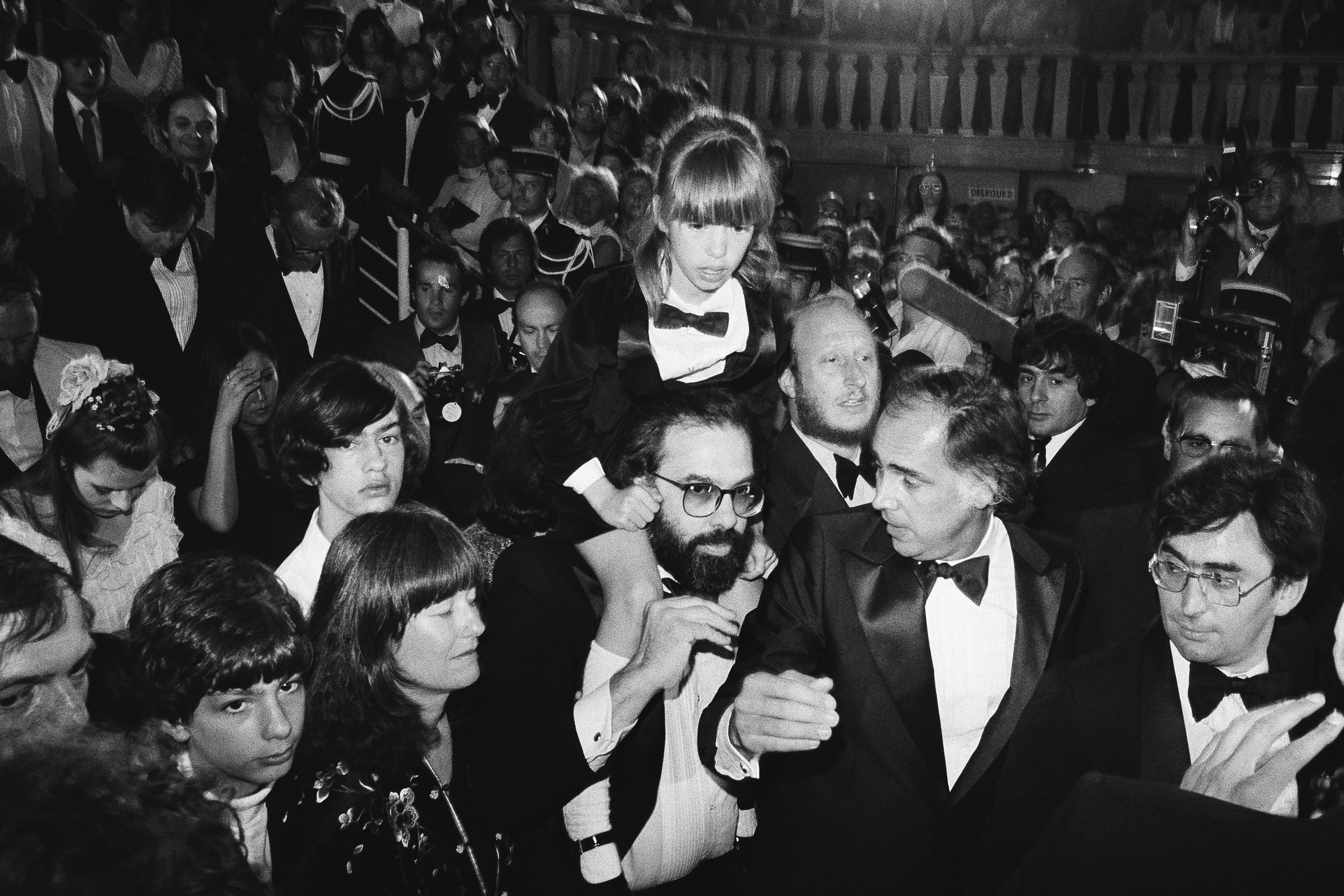
Yet, Coppola didn’t hesitate to once again invest his own funds into Megalopolis, pouring around $120 million from his wine business into its production. This isn’t unfamiliar territory for him. Coppola famously injected millions into Apocalypse Now, a film that similarly premiered in Cannes amid skepticism and rumors of production chaos.
Is there an inherent need for Coppola to always push the boundaries?
"There are many times I’ve heard that Francis can only perform when he’s really up against it," Coppola says. "I don’t think that’s the case but maybe it is."
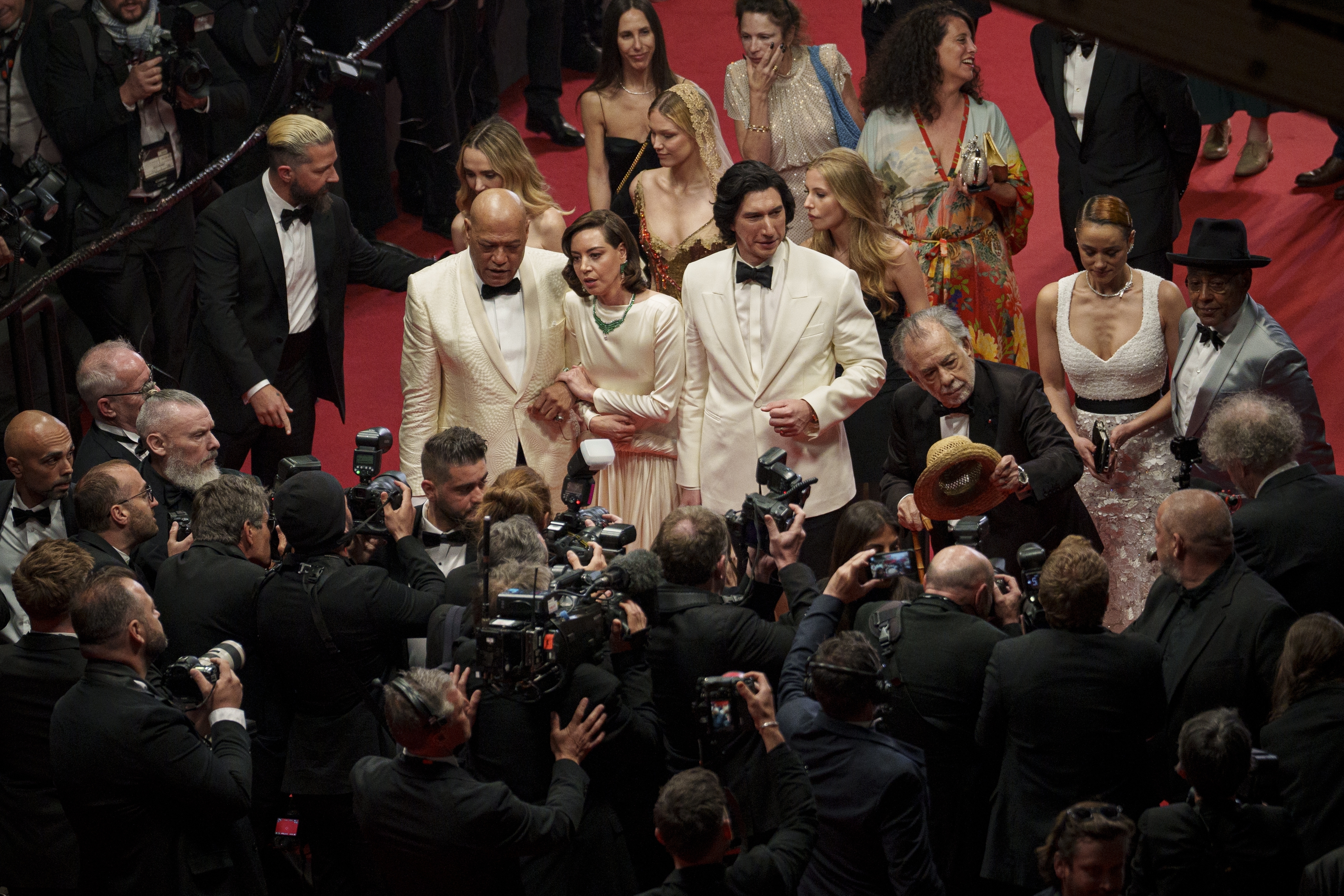
When Coppola and Driver first met to discuss the film several years ago, "We talked extensively about babies," Driver recalls. "How they're constantly engaged in complex activities even though it seems like they're doing nothing."
"Every child being lost today in Sudan or Palestine — and there are many — is a potential Archimedes, a potential Einstein, a potential Mozart,” Coppola asserts.
Here, Coppola circles back to the notion of time. He believes we're not fully comprehending our capacity to reshape the world. Despite prevalent apocalyptic and ecological concerns, Coppola sees wonders all around. Electricity isn’t ancient, he points out. The internet was developed within his lifetime. Fusion, Coppola ponders, holds immense potential. We’re ingenious, he declares.
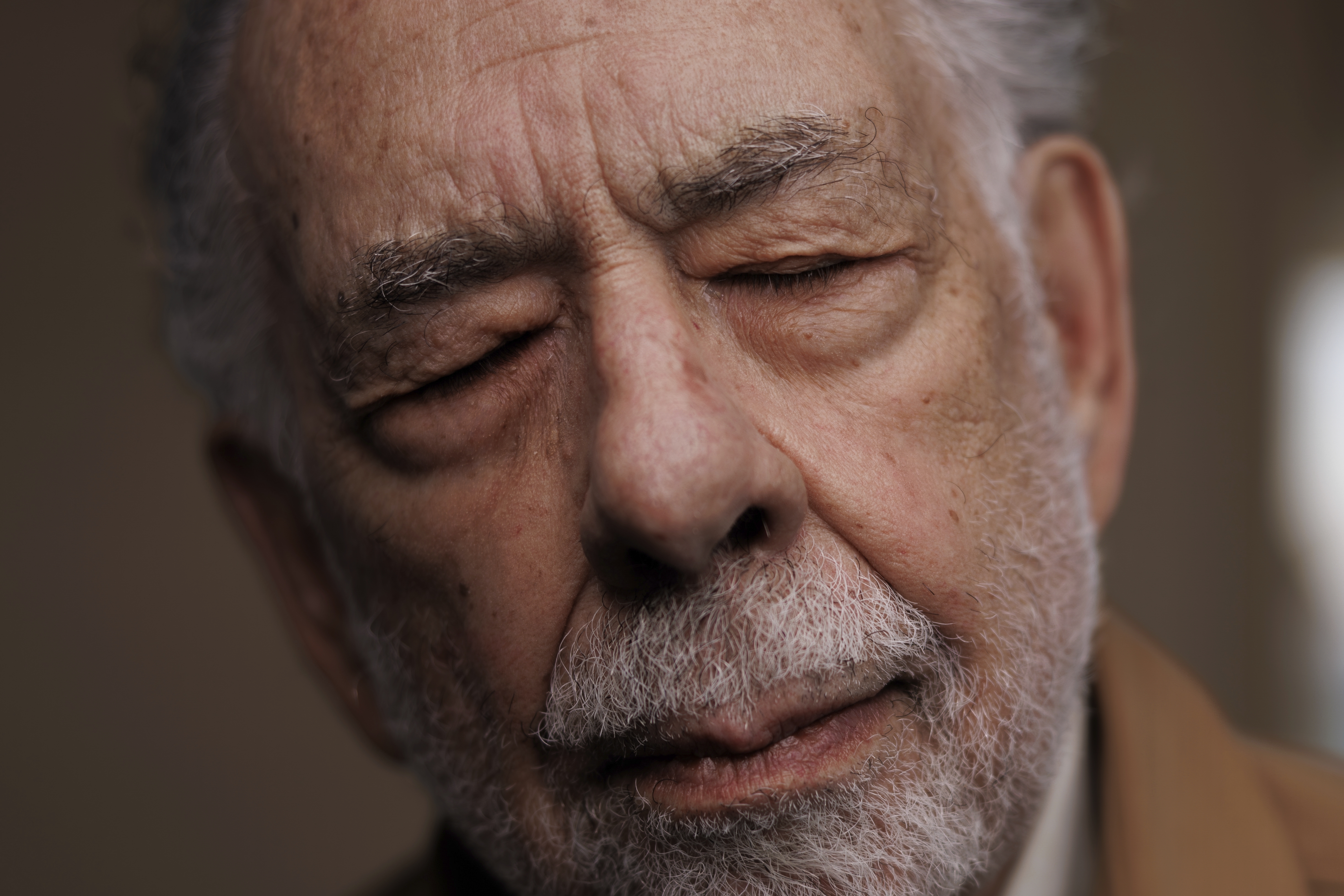
Many might be tempted to see Megalopolis as Coppola's final venture. But as his sister Talia Shire shared with the media at Cannes, Coppola always has his gaze set forward and is already immersed in penning another script.
Read More
